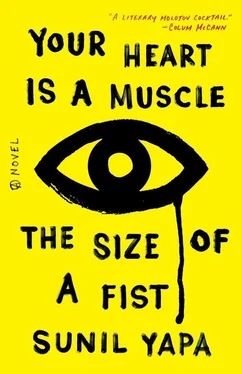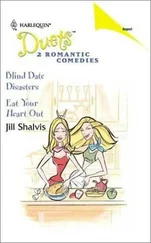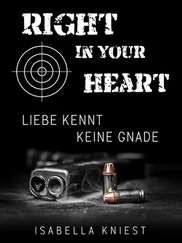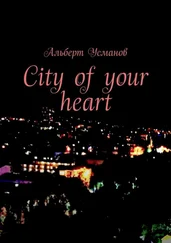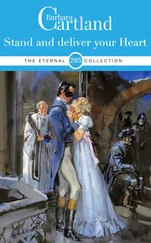A team, reacting almost instantly, like they shared a brain, which felt amazing, to tell the truth, but the guy had gotten whatever it was he was reaching for and was now offering it delicately, pinched between his fingers.
“Officers,” he said, “I am a delegate.”
Park lifted the man’s chin with the end of his riot baton. His fancy suit was fruity with tomato guts. Put his baton under the chin and lifted.
The guy was holding out a business card.
Park took it. Ju looking over his shoulder. There was a tiny lion holding a sword on the card’s ivory face. Embossed in gold letters the card read:
DR. CHARLES WICKRAMSINGHE
DEPUTY MINISTER OF FINANCE AND PLANNING
THE DEMOCRATIC SOCIALIST REPUBLIC OF SRI LANKA
Park crumpled it in his fist and let it fall to the sawdust floor of the market. “Socialist what?” he said.
God, he was feeling frickin’ great.
Dr. Charles Wickramsinghe
Intermission III
Three Hours Until the Meeting
When he imagined the names: the World Bank; the International Monetary Fund; the World Trade Organization. The Kennedy Round, the Uruguay Round. NAFTA, MAI, and the GATT.
When he imagined the economic ministers in headphones and suits sitting at long brown tables; voices translating Portuguese, Russian, Mandarin, negotiating the tax on French cheese; British beef imports; how many Toyotas will be assembled in Ohio.
When he imagined the great container ships cruising the seas, saw the steel hulls riding the ocean swells, the rough burlap of bagged coffee, the netted mounds of bananas; crates of strawberries grown fat under the summer sun of the southern hemisphere. When he imagined the container ships sailing from port to port, when he imagined the cables spanning the ocean floor, the twenty-four-hour financial markets, the satellites in orbit — why would someone want to stop this? It was free trade; it was global capitalism; it was the world.
Canceled? How could the meetings be canceled? It was catastrophic. It was impossible. He hadn’t thought this ragtag army of malcontents could organize themselves long enough to get a cricket match going. Let alone shut down the most important global financial meetings of the decade. But they had. They had managed to cause enough confusion and chaos that the meetings were canceled. It was impossible.
And now here Charles found himself wandering around a bloody fish market.
Somewhere in his running he had gotten separated from the boy who had saved him, the boy in sandals and socks who was going to protect the Third World from the corporations of the world. And his running had taken him downhill, down Seattle’s steep streets five blocks to Pike Place Market where, now, Charles, alone, studied the rows of fish on ice, fish on newsprint. He watched men in knee-high yellow boots heaving silver bodies from hand to hand. A man and woman working side by side, amiably removing the alien heads of jumbo shrimp.
Five minutes. This was all the time necessary to drop from the zenith of victory into the slough of despond. Five minutes, and now here he was, alone and staring in despair at bloody fish wrapped in butcher paper and blue plastic.
So focused was he on his own depression he didn’t much notice the two cops or their armored vehicle. The officers were blocking the narrow aisle and Charles not really even paying attention. A bulky square-shouldered man with an unfortunate face. The man asked him who he was. The woman began to pat him down. Charles reached into his pocket for his passport and credentials, and that was the precise moment when the officers lifted him by the arms and threw him into the table of tomatoes.
He landed on his back. Tomatoes exploding all around him. Staining his jacket with juice and seeds. The tomato man crying in anguish and Charles in a state of complete shock thinking this was the very last. The very last humiliation this country would make him suffer.
They rolled him onto his face. He felt his arms pulled behind his back, and then a plastic zip cuff was looped around his wrists and cinched tight as any rope. Where his briefcase went, he didn’t dare ask. When his meeting would take place he now knew would be never.
Strange lights appearing out of the poison cloud. Victor counted; he breathed; he forgot to count, he started over again. His body didn’t belong to him. It belonged to the gas and the gas wasn’t a gas. It was a drug. Divested of its context, seen without its surroundings, the massive tear gas cloud appeared almost innocent. Something neutral and harmless which didn’t care one way or the other about your purpose like a low cloud humming along the ground on a misty day, wetting the grass, your socks, your pants with damp drops of dew.
But then it touched your face and your skin began to sizzle.
Do they add something to the gas, Victor wanted to know, to make you paranoid, a chemical to induce panic when inhaled, wherever it is manufactured, the underground labs of Virginia military, maybe that is where it was conceived, but no, this was concocted where? A little lab with glass and bright light, titer and teacher and trickle, a little lab and the green lawns and what did they do on college campuses in the heady 1960s? They protested and burned and organized and wept while inside the brown brick buildings on a glorious sunny day a nice professor with a beard and a salary sufficient to pay for a duplex for his loving wife and pretty kids perfected CS gas, originally discovered in the 1920s, sure, but perfected to drop on the North Vietnamese. But is that what he thought about? No, it was an academic exercise divested of meaning or consequence because what he makes is what he makes and he focuses on the task and not where it will land in the world. He pays little or no thought to what his work will do once loosed into the great brown-yellow elsewhere. Why care about something he can’t control? Why care about something he maybe suspects will only bring troubling thoughts, bad sleep, an irreconcilable dilemma. My family for a North Vietnamese family? Does this make any sense? Is this a real dilemma? Of course I answer no. Of course I know somewhere in the back of my brain that what I use my intelligence and talent and training to perfect then travels a long path through the world that ends in choking searing pain for human beings halfway across the planet, daughters and mothers and sons and dads. I perfected this. But it is my work to perfect it, not to produce it.
How can we blame him, Victor wanted to know — the nice professor with a beard? He wasn’t the one who dropped it on the North Vietnamese. How can we really blame the pilot that piloted the plane, or the navigator, or the bombardier. They didn’t make the war. Blame the politicians who sent us in? Why bother? They are the most alienated of all, their work to make decisions for millions of people who are known to them only as polling statistics, a crowd of faces come election time, a map of Vietnam come killing time, a cluster of red dots which represents something which must be destroyed. They have the most difficult job of all — to somehow connect that splash of red to the human life it somehow denotes. An awfully tall order to imbue the mindless statistic with the humanity it represents, the village, the rice, the longing for life, the familiar worried glance to the sky to see if rain is coming and it is not rain or cloud that you find there but American B-52s in formation. The terror and the strangeness of this alien bug blotting your sky and causing your children to cry in fear, your chickens to run in fear, but where will they go, back and forth in their pen, and the pigs to scream in fear, and the humans to run in fear, but where will they go, nowhere to go, of course, to escape the destruction that is coming, unless they mean to escape the confines of being Vietnamese. The bombs falling are their ticket to refugee status, the sucking engine whine the signal of their exile from the world where grass is grass and a bird in a tree something to love without thought because it means home.
Читать дальше
